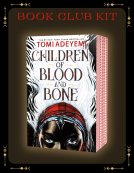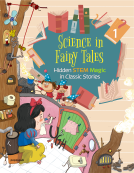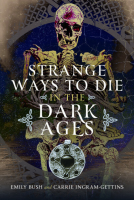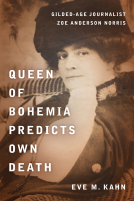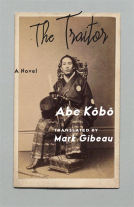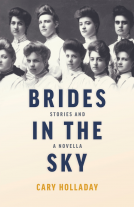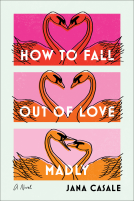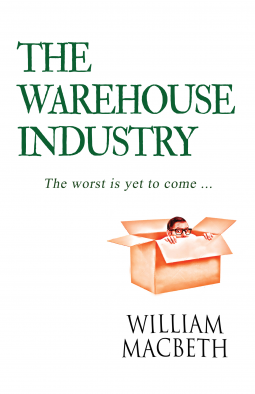
The Warehouse Industry
by William Macbeth
This title was previously available on NetGalley and is now archived.
Send NetGalley books directly to your Kindle or Kindle app
1
To read on a Kindle or Kindle app, please add kindle@netgalley.com as an approved email address to receive files in your Amazon account. Click here for step-by-step instructions.
2
Also find your Kindle email address within your Amazon account, and enter it here.
Pub Date Jun 21 2018 | Archive Date Jun 07 2018
Talking about this book? Use #TheWarehouseIndustry #NetGalley. More hashtag tips!
Description
Once there was a man.
When the man was a boy he killed a duck. He called the duck Peter, but it was too late. The duck was dead.
He got a job at a pie factory. Not a great job, but they didn’t ask too many questions, which was the main thing. He didn’t last long there, and left quietly without telling anyone.
The man is trying not to draw attention to himself.
He settled for a career in the warehouse industry. One day there was a delivery of cheap pillows, but the worst was yet to come.
The worst is always yet to come.
Available Editions
| EDITION | Paperback |
| ISBN | 9781786080547 |
| PRICE | £8.99 (GBP) |
Average rating from 10 members
Featured Reviews
I've never read anything quite like this. The clunky writing style is rather exasperating at first, but unbearable only until your mind adjusts to it, all repetition and non sequitur - not unlike years of listening to twin toddlers babbling at you, alone all day, as I recall. "I was living with a girl I used to live with at the time: the girl I used to live with when I worked at the pie factory." "I don't remember leaving work that day, but I definitely did. You don't need to remember everything."
The pitiful narrator here is more of a ghost than a man, merely "haunting himself" while consumed by the need to not call attention to himself. So lonely he conducts conversations with inanimate objects: like an invitation, and furniture. The story is told in a fractured manner, with alternating chapters set at different anchor points in the narrator's life, various factory jobs, the stag party preceding his older brother's first wedding, and finally his older brother's second wedding. On first reading I assumed it was a drawn out, violent revenge tale but then as I browse through it a second time I become unsure of whom to blame for the narrator's having come unhinged, or at what point in this story it actually happened.
 Mandy J, Reviewer
Mandy J, Reviewer
This is such an unusual and clever book, original and compulsively readable and I found myself more and more drawn into it as the narrative progressed. It’s a bit of a puzzle at the beginning. It’s narrated by a definitely weird protagonist, who talks in a strange repetitive way, and who confesses that all he wants to do is to pass unnoticed in the world. He finds it hard to relate to other people and is very much a loner. There are some darkly humorous episodes but the mood becomes more and more sombre as more of the background to his present state is revealed and when the explanation comes it is both tragic and unexpected. I particularly enjoyed the unpredictability of the book. It’s impossible to guess where the author is going with it, and the flat unemotional style only adds to the mystery of what turns out to be a very emotional book indeed. An excellent debut novel, which shows an expert feel for timing and construction and an impressive ability to get into the head of a damaged man. Thoroughly enjoyable.
This may be the most difficult book review I’ve ever written. How can I explain this book? I don’t understand why the author wrote it or what he was trying to create. Even if I could see the meaning in it, I’m not sure this book would appeal to mainstream readers. But, since I did read it- the entire book- and in all honesty didn’t want to put it down- I will try.
The book is written in a detached first person narrative, very mechanical. The narrator never tells us his name. He relates a curious series of events, some of which are disturbing. He seems to not have feelings for people, only inanimate objects. “The only thing I was good at was not drawing attention to myself.” The book becomes gripping as the reader tries to figure out what is wrong with the narrator.
I think the author should provide more information about why he wrote this book. Was it an MFA project? And what is the problem with the narrator- is he depressed, does have a dissociative disorder? And what about the title, The Warehouse Industry? Yes, the narrator works in a warehouse, but is there more meaning to it? Does he feel “warehoused”? When I saw title and the book cover, I thought it was going to be a humorous account of working in a warehouse.
If you are looking for a beach read, or a cozy mystery, this is not the book for you. But, if you are looking for something different, edgy, something that will wake up your book club, give it a try.
Thanks to Netgalley, Thistle Publishing and David Havilland for the ARC.
 Jim S, Reviewer
Jim S, Reviewer
This is a strange book but it also has a compelling pull on the reader. You need to try to work it out! At the start of the novel, we find a young man (I don’t think we ever learn his name) seeking out a job in a warehouse. He isn’t particularly good at this job, doesn’t appear to enjoy it and wouldn’t mind being somewhere else. He is, to be frank, a loser. If you are kind, you might assume he was suffering from some kind of depression.
He has a girlfriend who he robs so he has to leave town. He finds another job in another town and the manager’s daughter takes a shine to him. Neither of these potential relationships appears to be of any interest to our anti-hero and they simply lead him into further problems.
Then, gradually, through a series of flashbacks we begin to find out what has happened. Essentially, two of his brother’s friends decided it would be fun to persuade him that while in an extremely drunken state, where he got involved in a fight, he had killed his opponent. The book now becomes clearer. The young man believes himself to be on the run and is consumed by guilt. It is only much later in his life, after a chance overheard conversation at a wedding that he finds out the truth.
Does his life then get better? Possibly? However an awful lot of it has been wasted. He also takes a fairly brutal revenge on the men who deceived him so it might be the case that he is still a hunted man!
It is not a long book. The style is deliberately flat and, at times, repetitive to convey the mundane quality of his existence. He is beaten up by various people but is quite unable to develop any kind of social existence to counter this violence. Some might say he brings it upon himself. All in all, it is a weird story redeemed by the realisation that there probably are many people living at subsistence level and doomed by guilt and mental illness. In a way, he is a little like Eleanor Oliphant but there appears to be no one around to help him get better.
Readers who liked this book also liked:
We Are Bookish
Sci Fi & Fantasy, Teens & YA
DongA Science
Children's Fiction, Middle Grade, Science
Rachel Joyce
Historical Fiction, Literary Fiction, Women's Fiction
